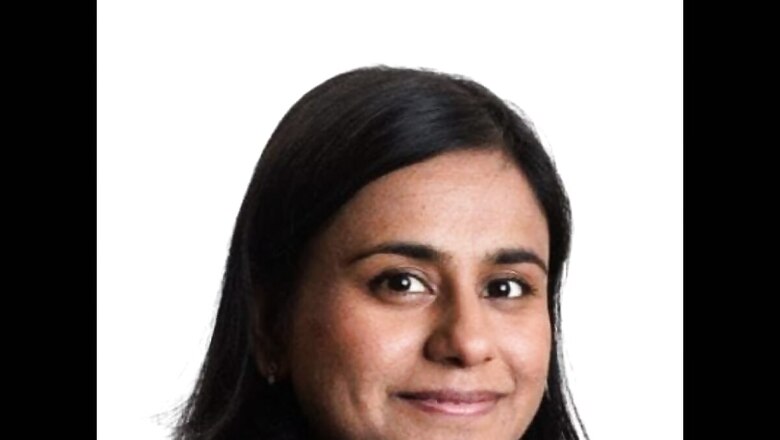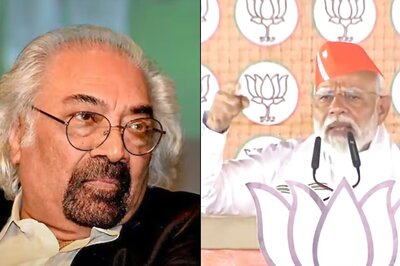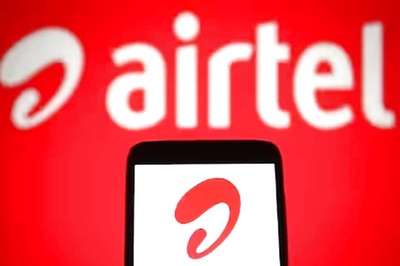
views
Geetika Srivastava, an Indian-American physician trained at AIIMS, is leading the American health regulator’s ‘Project Asha’ to increase cancer clinical trials in India.
Srivastava, a haematologist-medical oncologist and a medical officer at the US Food and Drug Administration (US FDA), works as a regulator to review cancer drug applications and continues to treat patients with cancer.
FDA’s ‘Project Asha’ aims to increase oncology clinical trial access in India as currently, only 1.5 per cent of global trials are conducted in the country. Srivastava leads the project which originated from Prime Minister Narendra Modi’s visit to the US in June 2023, where he and US President Joe Biden pledged to ease India’s cancer burden by announcing commitments including convening a US-India Cancer Dialogue to advance the prevention, early detection, and treatment of cancer.
“With Project Asha, we have interest in increasing cancer clinical trial access in India and enabling India to become an active partner in multinational global trials,” Srivastava told News18 over a Zoom call, adding: “We have already begun conversations with various stakeholders, including Indian physicians, patients, regulators, and sponsors.”
She said the US FDA is planning a series of sessions with these stakeholders to outline the current availability of oncology clinical trials, understand the regulatory landscape and identify barriers that exist to bringing intervention oncology clinical trials in India.
“As regulators, we have expertise in regulatory science and can share our knowledge and guidance. We plan to invite Indian regulators to participate in international meetings with our other international regulatory colleagues to share regulatory initiatives and lessons.”
Also, she said the American regulator is having “conversations for conducting educational workshops on regulatory sciences to train early career researchers”.
Without sharing the possible timeline for kickstarting the project on ground, she added that “this will take time and this is just the start of what we hope will be ongoing discussions and opportunities where the FDA can assist”. “We have already started conversations and are talking to all stakeholders. We will share the information when ready.”
Hailing the leadership of both countries for making the move, she said: “It is very encouraging that the leadership of both countries recognise this need. That is what gives us hope, that the leaders are asking the right questions and doing the right things.”
Srivastava came to the US to pursue her Master of Public Health from the University of Texas and was involved with cancer research at MD Anderson Cancer Center during that time. She is trained at India’s largest public hospital, All India Institute of Medical Sciences, New Delhi. She is well versed in India’s constrained public health system and local health issues at the root level.
What is Project ASHA & how does it help Indian patients?
A clinical trial is a type of clinical research where researchers and pharmaceutical companies study drugs that may improve upon the current treatment options. Clinical trials are crucial factors for the development and advancement of medical science as they drive innovation in anti-cancer therapies, advance methods to detect and prevent cancer and provide a greater understanding of the disease.
The objective of the project is to put India on the global map for conducting oncology clinical trials. However, before this, an ecosystem needs to be created.
“Project Asha comes from the vision of Dr Richard Pazdur, director of the FDA’s Oncology Center of Excellence, following the US-India cancer dialogue in 2023. It is a great opportunity to lead Project Asha that brings together my knowledge in oncology and public health as well as my experience of training in India,” Srivastava added.
She explained that a robust clinical trial ecosystem will enable India to access multi-regional trials, and this will also serve as a platform for Indian pharmaceuticals to grow to international standards.
“The eventual selection of trials and sites is a decision that will be made among the various stakeholders as best fits the needs of India.”
When asked about the benefits the project brings to patients, she said: “For patients, participating in clinical research can mean being able to access new drugs and therapeutic advances.”
The story behind the name ‘Project ASHA’
The name of the project comes from the English word ‘hope’.
“It was Dr Pazdur’s idea to name the project ‘hope’ in Hindi as that word is simple yet truly captures the spirit of the programme,” she said, adding: “That’s what our patients tell us, they want hope. Clinical trials bring hope.”
“Patients often ask me: ‘Isn’t it very depressing to see cancer patients?’ But I say no. We as oncologists can provide hope.”
How to start the project?
FDA, according to Srivastava, initially wants to get the conversation started to understand the regulatory landscape in India.
“We, at the FDA Oncology Center of Excellence, hope to bring all stakeholders together, which includes patients with cancer, their caregivers, doctors, other healthcare professionals, personnel and sponsors of cancer clinical trials and the Indian regulators for multiple discussions. The idea is to learn from all these interested parties what the challenges and barriers are, and identify opportunities that will work for the Indian health care system.”
How will the FDA help the project?
Srivastava said: “We don’t have all the answers. We want to learn how we can help, and how we can bring together all of the stakeholders to work together to improve the clinical trial system in India.”
The stakeholders include healthcare professionals, drugmakers, pharma companies, regulators and patients. To build a robust clinical trials system, she said, a country needs to reach the point where healthcare professionals feel well-equipped to enrol patients on these cancer clinical trials.
“A country needs to have sponsors (such as pharmaceutical companies) who are building the right infrastructure and capacity to conduct the clinical trials. You need the regulators in the country to ensure that the trial conduct is ethical, safe, and meeting international standards.”
“And, importantly, patients need to have the knowledge and tools to understand and see the value of participating in clinical trials. Patient education and communication may be a key focus of this effort participating in clinical trials.”
Explore the detailed schedule and key constituencies of the 2024 Lok Sabha Election’s Fourth Phase



















Comments
0 comment